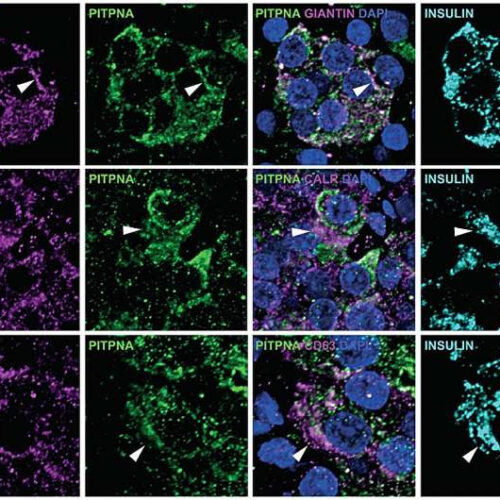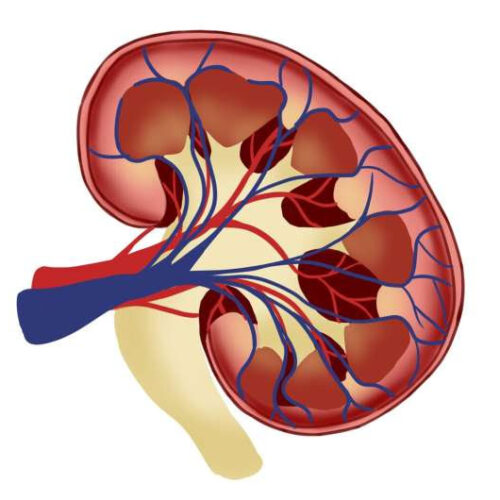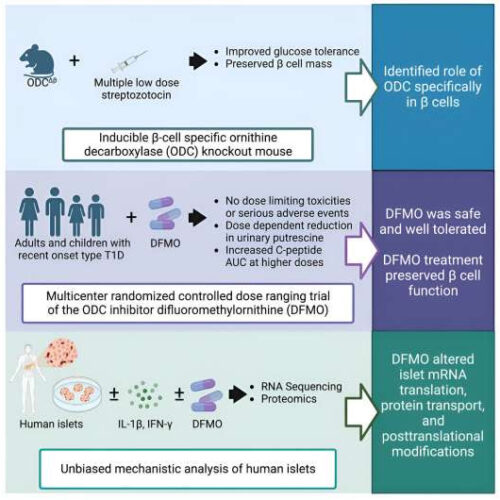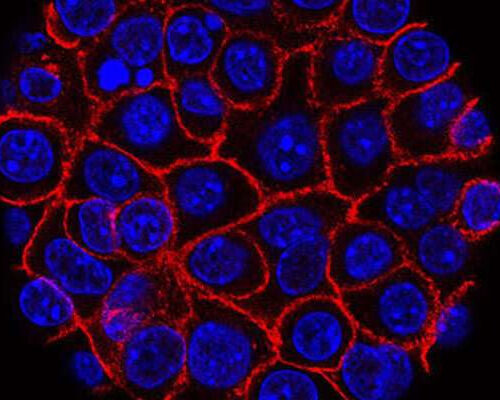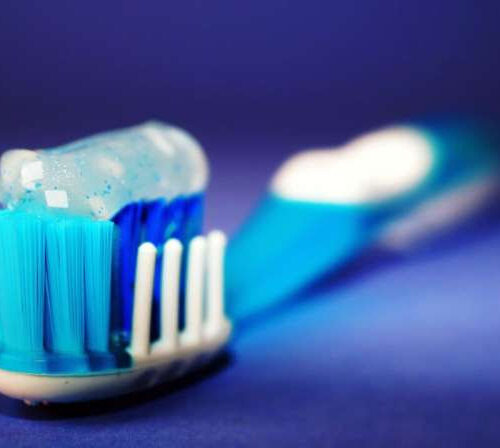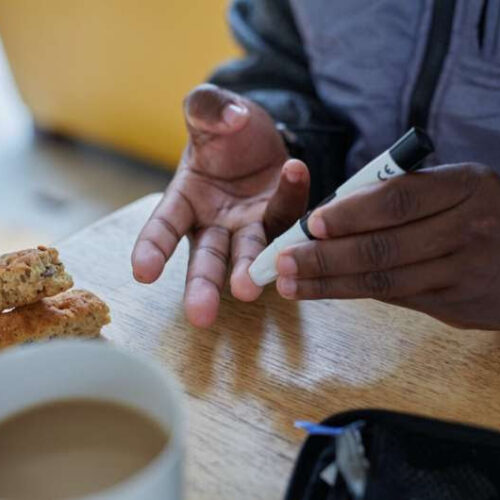by Johns Hopkins University Immuno staining of endogenous INSULIN (cyan), PITPNA (green), and protein markers (magenta) for the Golgi (GIANTIN), ER (CALR), and intracellular granules (CD63) in pancreatic islets isolated from a non-diabetic human subject. White arrows denote the colocalization of protein markers with PITPNA. Credit: Nature Communications (2023). DOI: 10.1038/s41467-023-39978-1 Scientists at Johns Hopkins All...
Category: <span>Diabetes</span>
Are sodium-glucose cotransporter-2 inhibitors safe for patients with diabetes and cancer?
by American Society of Nephrology Credit: Pixabay/CC0 Public Domain Sodium-glucose cotransporter-2 inhibitors (SGLT2i) have heart- and kidney-related benefits for patients with and without diabetes that go beyond their initial indication for lowering blood sugar levels. In clinical trials, the risk of serious adverse events with SGLT2i has been low, but the safety outcomes of SGLT2i in...
Human insulin less temperature-sensitive than previously thought
by Cochrane Credit: Unsplash/CC0 Public Domain A new article published in the Cochrane Database of Systematic Reviews has found that insulin can be kept at room temperature for months without losing potency, offering hope to people living with diabetes in regions with limited access to health care or stable powered refrigeration. This affects millions of...
Study provides preliminary evidence in favor of a new type 1 diabetes treatment
by University of Chicago Medical Center Credit: Cell Reports Medicine (2023). DOI: 10.1016/j.xcrm.2023.101261 Type 1 diabetes is an autoimmune disease that causes the body’s immune system to attack and destroy insulin-producing beta cells in the pancreas. Traditional management of type 1 diabetes has primarily involved replacing the missing insulin with injections which, though effective, can be...
New research links high salt consumption to risk of Type 2 diabetes
A study has, for the first time, linked frequent salt consumption to Type 2 diabetes Peer-Reviewed Publication TULANE UNIVERSITY Those at risk for Type 2 diabetes may already know to avoid sugar, but new research suggests they may want to skip the salt as well. A new study from Tulane University published in Mayo Clinic...
Study directly links high insulin levels to pancreatic cancer
by University of British Columbia Pancreatic cancer cells (blue) growing as a sphere encased in membranes (red). Credit: National Cancer Institute A new study from researchers at the University of British Columbia’s Faculty of Medicine reveals a direct link between high insulin levels, common among patients with obesity and type 2 diabetes, and pancreatic cancer....
Special mouth rinse and brushes can help treat gum disease among diabetes patients
by Laurie Kaiser, University at Buffalo Credit: George Becker from Pexels Individuals with type 2 diabetes being treated for periodontitis may benefit from using an antimicrobial mouth rinse and small brushes to clean between teeth as part of their at-home oral care routine. This was a key finding in a recent study conducted by Patricia Diaz,...
Weekly insulin injections could be as effective in diabetes management as daily injection regimes
by University of Surrey Credit: Artem Podrez from Pexels Insulin icodec, a once-weekly basal injection to treat type 1 diabetes, has the potential to be as effective in managing the condition as daily basal insulin treatments, according to research from the University of Surrey. The results of the year-long phase 3 clinical trial could revolutionize the...
Research finds potential target for cardiovascular disease in diabetes
by Valerie Goodwin, University of Michigan Phenotypic characterization of neutrophils in 24-week-old Akita mice. (A) Representative extracellular acidification rate (ECAR) curves assessing glycolysis. (B) Glycolytic reserve is the difference between glycolytic capacity and baseline glycolysis; mean for n = 6, **P < 0.01 compared with WT mice by unpaired Student’s t test. (C) Representative oxygen consumption...
Verapamil can preserve beta cell function in Type 1 diabetes
by Jeff Hansen, University of Alabama at Birmingham Credit: Unsplash/CC0 Public DomainIn 2012, University of Alabama at Birmingham researcher Anath Shalev, M.D., reported that a decades-old blood pressure medication called verapamil completely reversed diabetes in animal models. In 2018, the team had translated these findings into a randomized, controlled, clinical trial, demonstrating significantly improved beta...

